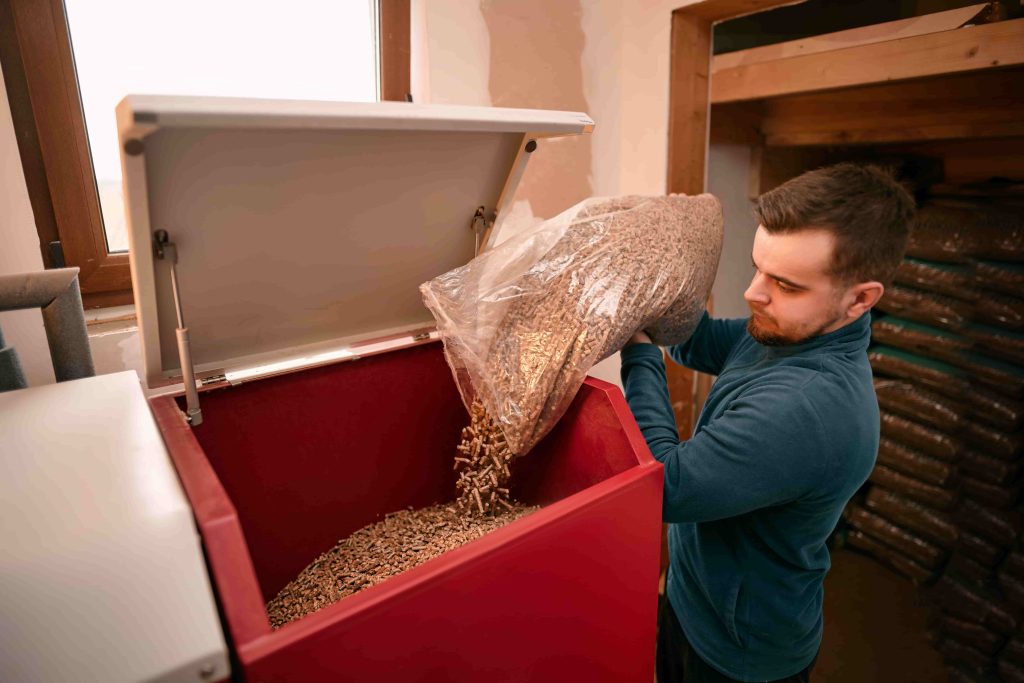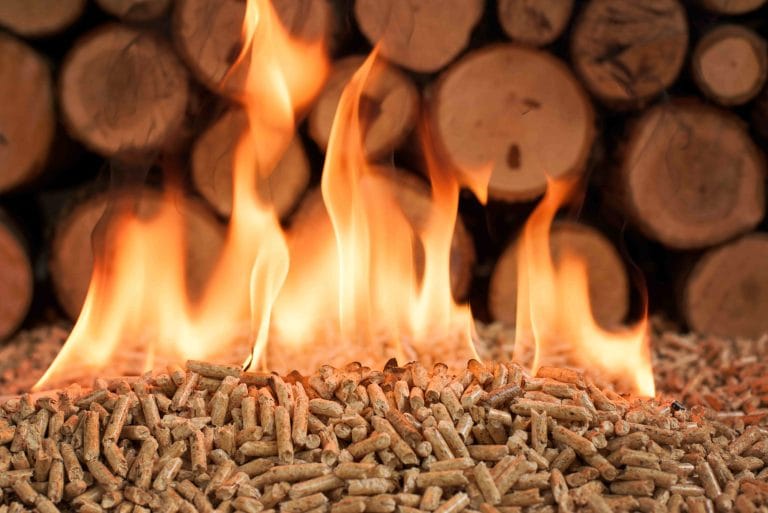The biomass boiler has become one of the innovative types of heating thanks to its technical characteristics and the raw material that is used for its operation. What are its advantages and what are its disadvantages? Let's discover them together.
What is a biomass boiler?
The term biomass boiler indicates heat generators that do not require fossil fuels, but biomass for their functioning. These substances derived from organic, animal or vegetable materials, used to produce energy, among which we find:
- firewood;
- residues of agricultural and forestry activities;
- farming liquid waste;
- waste from the food industries;
- seaweed.
Through their processing, they become an alternative source of both electrical and thermal energy.
The biomass boiler works in a similar way to the traditional gas ones, both as a heating system and for the production of domestic hot water. What changes is the primary source and a preponderant role is played by woody biomass. It derives from agricultural, forestry and wood industry’s waste.
In fact, among the most common types of sources there are wood, pellet and wood chip boilers.
- The wood-fired boiler uses pieces or logs of wood.
- The pellet boiler, on the other hand, works if fueled with this material or even with the combination of pellets and wood, as already happens with closed fireplaces.
- The wood chip boiler, on the other hand, requires chopped natural wood, with or without bark.
Due to the type of fuel, the biomass boiler also requires the installation of a carbon monoxide detector.
The reason is to be found in the fact that not all combustion is totally clean. The consequent risk is that carbon monoxide is produced, a substance dangerous to people's health.
Before considering this option, the user must consider the fact that it requires a lot of space. It is in fact larger than a traditional or condensing boiler, because the fuel burner is part of the structure and it is necessary to organise the storage spaces.
It is usually placed in underground rooms or outside, requirements that not all homes have.

What does a biomass boiler burn?
As mentioned earlier, there are three very common types of biomass boilers on the market: wood, pellet, and chip boilers.
Wood biomass, obtained from wood processing, is the most common material for fueling these heat generators, but it is not the only one. We also find:
- firewood;
- residues from agricultural and forestry activities;
- livestock effluents;
- food industry waste;
- seaweed.
Fuel is a crucial element to consider when deciding to install a biomass boiler in your home.
In the case of a pellet boiler, for example, the fuel consists of natural wood sawdust, which is readily available. Pellets must be stored in a low-humidity environment, and must comply with quality standards to ensure the absence of substances harmful to the health of the inhabitants.
For a firewood boiler, it is necessary to have a space for drying the wood, which must be stored correctly to protect it from moisture.
There are also multi-fuel boiler models that offer the possibility to switch materials based on availability, cost, or the feasibility of one solution over another.
How does a biomass boiler work?
The operating mechanism of a biomass boiler is very similar to that of the more common gas boilers. The main difference lies in the type of fuel used to generate heat.
This heat is used to warm the water that flows through the pipes of the heating system. Essentially, the biomass is stored in a specific combustion chamber, where it is burned using an automatic feeding system.
The heat produced by the biomass combustion is then transferred to a heating system, which distributes the heat throughout the building. In some cases, the generated heat can be further used to produce electricity through the use of a turbine.
Is the biomass boiler a valid alternative to traditional gas boilers? Several considerations are required.
- If we consider the environmental impact, biomass energy comes from renewable sources. These plants exploit waste materials from other types of processing which can therefore be used a second time.
- This contributes to the waste recycling process, reducing their weight in storage operations and preventing them from being burned in incinerators.
- Burning wood, among other things, releases a limited amount of carbon dioxide. More precisely, the CO2 released by combustion corresponds to that already present in nature and therefore does not increase its levels.
- Biomass boilers are also taken in consideration for raw material’s costs, especially if you opt for a pellet or a wood boiler. They are easily available materials and certainly more accessible than, for example, gas rather than coal or oil, which must be imported in large quantities to meet the demands.
It is estimated that savings on bills can reach up to 50% if the biomass plant is added to other plants that use renewable sources, such as those with solar panels.
On the other hand, there is another side to the coin.
- Biomass energy in itself is considered clean and eco-sustainable, but in order to become a combustion element it must be specially treated. Chemical or thermal processes are then introduced to reduce the moisture of the waste materials.
- At the same time, the combustion of wood causes the emission of fine particles, which is why it is prohibited in some areas by local regulations.
- Still in terms of environmental impact, there is also the risk of deforestation to get the wood from which to obtain the biomass.
The item "costs" affects the most disadvantageous aspects of biomass boilers.
- Installation expenses must be added to the price of the heat generator. It may be necessary to add some work to fit the new smoke outlets.
- Maintenance is not only related to the boiler, but also to the biomass combustion compartment, which needs to be thoroughly cleaned.
- The investment could prove useless and expensive in the case of a home without adequate thermal efficiency. The heat would be easily lost and the desired effects would vanish with it.
- Finally, space is vital. If it were not possible to install the boiler in an underground room, it should be placed outside. Not an optimal option, considering that it must be carefully protected from atmospheric agents in order not to compromise the correct functioning of the generator and the yield of the raw material.
How much does a biomass boiler cost?
The biomass boiler is often considered a valid alternative to other systems because it helps to contain heating costs.
The price of fuels such as gas has famously risen as a result of the war between Ukraine and Russia. In comparison, wood and pellets’ price is lower. On the other hand, it was only in 2022 that the price of a 15 kg bag of pellets reached more than £10, twice as much as before, in the face of a more substantial demand.
Therefore, if the biomass boiler has a less expensive bill for its use, at the same time it requires a substantial initial investment. Depending on the size and power, the initial fee for the purchase goes from £4,000 to £10,000 on average.










































